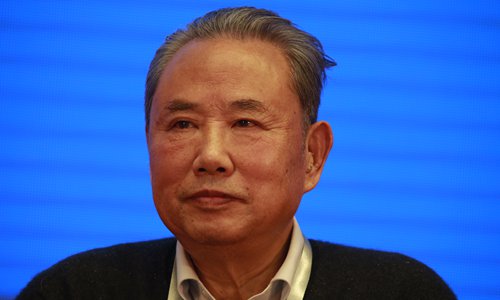Numerous public opinion surveys have shown that Chinese people have a sharply negative attitude towards genetically modified foods, despite the worldwide scientific consensus that they are as safe as any other.
But the latest piece of research, published in the Nature partner journal Science of Food by two scientists working at University of California-Davis, is even more shocking.
The authors, Kai Cui and Sharon Shoemaker, surveyed the opinions of over 2,000 Chinese citizens from 193 cities and representing all 31 provinces of China.
The researchers report that 13.8 percent of respondents agreed with a widely-circulated rumor in China that GMOs have been created by the United States as a form of “bioterrorism” against China, and that all patriots should therefore oppose them.
Extrapolated to all of China’s 1.379 billion people, this finding implies that as many as 190 million Chinese citizens may believe in this extraordinary and bizarre conspiracy theory.
The precise question, translated literally from the Chinese, was the following: “There is an opinion that the transgenic technology from the US may be bioterrorism to China. If you are a patriot, you should oppose GM food. What do you think about this?”
While 13.8 percent of respondents selected “Agree, patriot should oppose GM food,” 54.4 percent selected “Disagree, debate on GM food should base on science” and 31.8 percent selected “I have no idea about that.”
The theory seems to have originated in 2013 with an op-ed alleging a Western plot to control China, published in the nationalist Global Times by military strategist and People’s Liberation Army Major General Peng Guangqian.

As The Australian reported in a newspaper article headlined “GM paranoia hinders China’s ability to feed itself,” in the eyes of Peng and other GM opponents:
“GM food is not merely a cause of cancer and a source of infertility. It is also a grand Western scheme… a monumental, supremely devious plot to annihilate the Chinese and other people of colour… created by Monsanto… with the backing of the Pentagon and leading private foundations in the US, to control the global food chain.”
The response from the Chinese respondents to Cui and Shoemaker’s survey might sound like an aberration, except that in response to another question fully 41 percent of respondents declared that they would oppose GM food.
China has suffered several recent bona fide food scandals, involving adulterated milk, pesticide residues and other serious safety issues. In 2008. for example, hundreds of thousands of infants were affected by adulterated baby milk.
Therefore, almost as shocking as the conspiracy theory is the additional finding that over half of all respondents thought that the safety issues presented by GMOs were worse than, or as bad as genuine food safety issues like “illegal cooking oil, pesticide residue, feed additive and water pollution.”
This broad-brush opposition was not correlated with any great understanding of what genetic modification actually is. Cui and Shoemaker write:
“The result of our survey showed only 11.7 percent of the respondents self-reported that they were familiar with the general scientific principles of GM technology, contrasted to 49.5 and 38.8 percent saying they know something and nothing, respectively, about the subject.”
Ignorance was even more profound when the researchers asked the public which kind of genetically modified crops are actually grown in China. Only 1.2 percent knew the correct answer, which is that only GM cotton and GM papaya have been approved for commercial cultivation in the country.
Perhaps unsurprisingly, the researchers also found a positive correlation between those who knew nothing or little about GMOs and those who opposed them. “The lower the understanding of GM technology, the more hesitant the respondents were to accept GM food,” they report.
However, Chinese citizens were unlikely to trust scientists to give them information. While 23 percent were prepared to “believe in biologist’s opinion,” this compared to 45.5 percent who chose “do not trust biologist’s opinion.”
Cui and Shoemaker report: “The debate around GM food has become increasingly one-sided in recent years, with activists spreading misinformation via social media about the human health dangers of GM food as well as the negative environmental impact of GM crops.”
As elsewhere in the world, misinformation has proliferated primarily via the internet. According to the survey, nearly 70 percent of respondents acquired information about GM foods from the internet as opposed to traditional media or academic sources.
Needless to say, this political climate does not bode well for a more sustainable agricultural system in China, which feeds 20 percent of the world’s population on only 7 percent of the globe’s agricultural land.
Achieving this food security feat currently means that China consumes 35 percent of the world’s agricultural chemicals, leading to severe problems of pesticide and fertilizer contamination and ecological harm.
Genetically engineered crops can dramatically reduce chemicals use and make farming more sustainable in other ways, such as requiring less fertilizer. However, unless reactionary attitudes to new agricultural technologies change, China will be stuck with old technologies – and attendant food safety and environmental hazards – for a long time yet.
